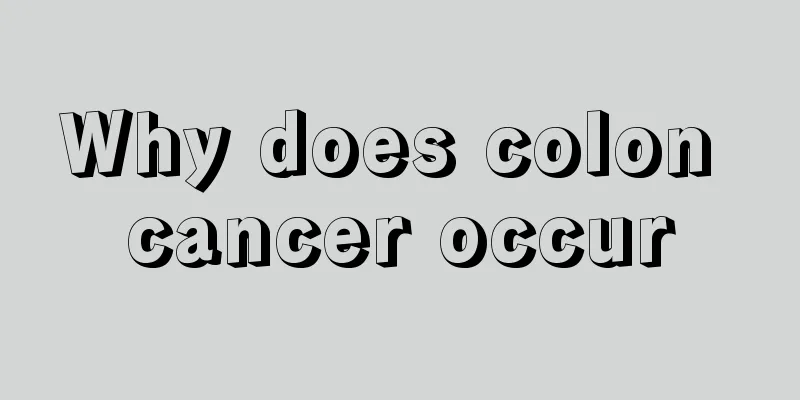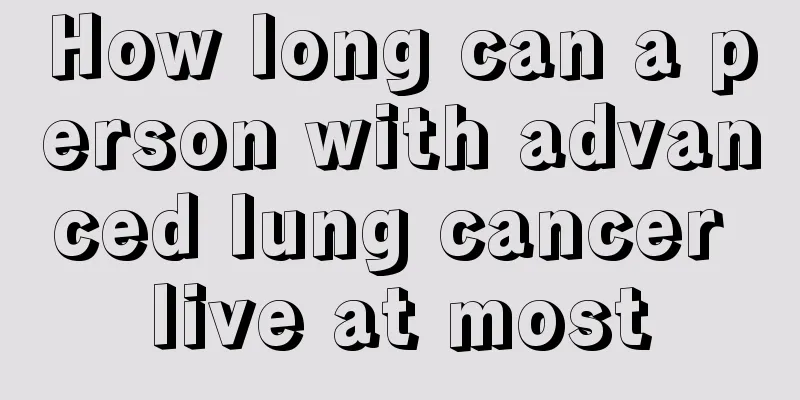The difference between cecal cancer and colon cancer

|
Cecal cancer and colon cancer are two different types of colorectal cancer, the main difference being the location of occurrence and symptoms. Cecal cancer is located in the cecum, while colon cancer occurs in different parts of the colon. The causes, symptoms, and treatments of the two are different, and diagnosis and treatment need to be based on specific circumstances. 1. Causes of cecal cancer and colon cancer The causes of cecal cancer and colon cancer involve multiple factors such as genetics, environment, physiology, trauma and pathology. Genetic factors: People with a family history of colorectal cancer have a higher risk of the disease, especially those who carry certain gene mutations such as the APC gene. Environmental factors: Long-term high-fat, low-fiber diet, smoking, drinking and other bad lifestyle habits may increase the risk of disease. Physiological factors: Aging, obesity, and chronic inflammatory bowel diseases such as ulcerative colitis also increase the risk of disease. Traumatic and pathological factors: Benign lesions such as intestinal polyps and adenomas may transform into cancer. 2. Symptoms of cecal cancer and colon cancer The symptoms of appendicitis and colon cancer vary depending on where they occur. Cecal cancer: Early symptoms are not obvious and may include dull pain in the right lower abdomen, anemia, weight loss, etc. Since the cecum is located deep, the tumor may not be discovered until it is large. Colon cancer: Symptoms are related to the location of the tumor. Right-sided colon cancer may present with anemia, fatigue, and abdominal masses, while left-sided colon cancer often presents with constipation, diarrhea, and blood in the stool. 3. Treatment of cecal cancer and colon cancer Treatments for cecal cancer and colon cancer include surgery, drug therapy, and adjuvant therapy. Surgical treatment: Right hemicolectomy is usually performed for cecal cancer, while left hemicolectomy or total colectomy is performed for colon cancer depending on the location of the tumor. Drug treatment: Chemotherapy drugs such as 5-fluorouracil and oxaliplatin are often used for postoperative adjuvant therapy or palliative treatment of advanced patients. Targeted drugs such as bevacizumab and cetuximab can also be used for specific patients. Adjuvant therapy: Radiotherapy is mainly used for rectal cancer, but it also has an adjuvant effect on some patients with colon cancer. Immunotherapy such as PD-1 inhibitors have shown some efficacy in advanced patients. 4. Prevention and early screening The key to preventing appendicitis and colon cancer is a healthy lifestyle and regular screening. Dietary recommendations: Increase dietary fiber intake, reduce red meat and processed meat intake, and eat more vegetables, fruits and whole grains. Exercise recommendations: At least 150 minutes of moderate-intensity aerobic exercise per week, such as brisk walking and swimming, can help reduce the risk of disease. Screening recommendations: People over 50 years old should undergo regular colonoscopy examinations, and high-risk groups with a family history should be screened in advance. Although both cecal cancer and colon cancer belong to colorectal cancer, there are differences in causes, symptoms and treatment methods. Early detection and standardized treatment are the key to improving survival rates. A healthy lifestyle and regular screening can effectively reduce the risk of disease. If relevant symptoms occur, you should seek medical attention in time to get a clear diagnosis and develop a personalized treatment plan. |
<<: What are the symptoms of benign nasopharyngeal carcinoma?
>>: How long after teratoma surgery can I walk and exercise normally?
Recommend
Is anxiety disorder a mental illness?
Nowadays, people are under increasing pressure at...
How long does it take to stay in the hospital for IVF
In fact, compared with normal pregnancy, the IVF ...
What are the symptoms of shoulder and neck strain
The symptoms of shoulder and neck strain are seve...
What are the common symptoms of bone cancer
Cancer is one of the most common killers nowadays...
Symptoms of allergy to Danshen injection
I believe that many of us have experienced allerg...
Can bean poisoning be detoxified automatically?
The vegetable green beans is also called string b...
Is mild osteosarcoma easy to recur?
After getting osteosarcoma, you need to understan...
What are the home care methods after cardiac cancer surgery? Commonly used conditioning methods after cardiac cancer surgery
The home care after surgery for cardia cancer inc...
What to do if your teeth are shaking
If a tooth is already loose, do not harm this par...
How to correct protruding front teeth
The professional name for protruding front teeth ...
How to relax your eyes better
Long-term excessive use of the eyes can easily le...
How to quickly recover from a tanned child
Children's skin is relatively delicate. If th...
I have a cold while breastfeeding and I always feel like there is phlegm in my throat. What's going on?
We all know that having children is one of the mo...
Do you have glasses to protect your eyes?
Affected by various factors in life, the number o...
The harm of smoking to teeth, why not quit smoking now
Smoking is harmful to health, but it cannot stop ...









